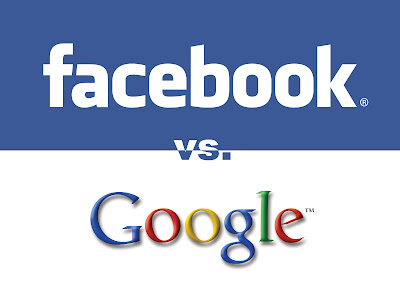
The social nature of the internet has evolved extremely from the beginning of the 21st century. Various improvements of the internet technology, like Web 2.0, have transformed it to a complete social platform. Our “virtual world” constitutes an inextricable part of our social life and can now be “compared” to the real world. According to a report on social networking by Economist, if Facebook (over 350m users) were a real community it could be the third most populated country after China and India.
Consuming every-day a reasonable amount of time in the virtual society, surveys have revealed that we do less in our real life. Statistics presented in the 2007’s Virtual Worlds conference in San Jose showed that 60% of people don’t watch TV as much, 22% don’t sleep as much and 15% spend less time with friends and family. According to these data, social networking has tremendous impact on the psychological and social aspect of humanity.
Nowadays, scripts based on science fiction, like “Matrix” and “Avatar”, are more and more close to reality. People like escaping from their real life’s problems and participate in more convenient and enjoyable virtual environments. What is so attractive there? Some people create a virtual identity trying to extent their current reputation interacting with people all around the world. Others are trying to build a new identity (avatar) benefited by the impersonation feature of the Web.
Secrecy and invisibility is offered in the Internet with open hands. You can obtain various identities, change and destroy them as well. Remember that the first form of online socialization was the chat rooms full of common people presenting themselves as wealthy and models cheating each others.
However, this “opportunity” can create serious illusions. Max Ray Butler, a 37 years old hacker, was convicted of stealing nearly 2 million credit cards facing the longest hacking sentence in U.S. history (13-years). In his letter to the judge he stated that invisibility leads him to a self delusion. He was convinced that he wasn’t committing a crime losing touch with the responsibilities derive from the real society’s laws.
“I have a lot of regrets, but I think my essential failing was that I lost touch with the accountability and responsibility that comes with being a member of society. A friend of mine once told me to behave as though everyone could see what I was doing all the time. A sure way to avoid engaging in illegal conduct, but I guess I wasn’t a believer because when I was invisible, I forgot all about advice. I know now that we can’t be invisible, and that it’s dangerous thinking.”
Linking what Butler argued with the social aspect of the Internet, social networks offer space for invisibility, at least, in the form of lack of physical presence. This fact drives people to treat more loosely and underestimate the potential implications that cyber-actions can bring to themselves and the others.
In 2009, Domino’s reputation got in trouble when a video, showing its employees to enjoy violating the hygiene rules, was uploaded to Youtube and received immediately million views. Domino’s tried to recover using another social network, Twitter.
The “virtual side” of society becomes day per day more powerful and influential. The Internet speed facilitates to its rapid evolution even more speedily than the real life with uncontrollable pace. In some cases, our digital identity is more important because a survey revealed that 45% of U.S. employers are using social networking websites to screen candidates. Companies bet on your loosely behavior to examine your “second” hidden “identity”!
Furthermore, the word “network” embodies the notions of butterfly effect and systemic risk because when someone manages to gain access to your account, he or she has access to all the “nodes of your value chain” with unpredictable consequences not only for you but also for your contacts. Our “digital baggage” of information is likely to be a stimulus for curious people who are driven by the unawareness of the actual effect on you due to their invisibility.
It happened to a famous Indian designer, Pria Kataaria Puri, during 2009. While she was in London, her Hotmail and Facebook accounts were hacked. She realized it when suddenly her friends started messaging her about where they should wire the money; she wondered “Wire me what money?” The hackers’ goal wasn’t only to violate her privacy but they had further financial aims. They stole all her business contacts and they sent a message arguing that she was lost in London without her passport and she needed to send her money via Western Union.
She acknowledged that “the hacking business operates like a vicious cycle. The hackers use my account to gain personal information of my contacts and then try and hack into my contacts' accounts.” She added, “I cannot tell you the risk my personal and business life was put to as a result of what happened.”
Deductively, the only thing that remains “invisible” in the social networks is the unpredictable consequences of believing that you are absolutely invisible. According to Friedrich Nietzsche, “If you gaze long into an abyss, the abyss will gaze back into you” and the internet is a huge abyss. It relies on the edge of chaos. As more you believe that it is a harmless toy or a controllable social square for entertainment, as more it can turn against you.







